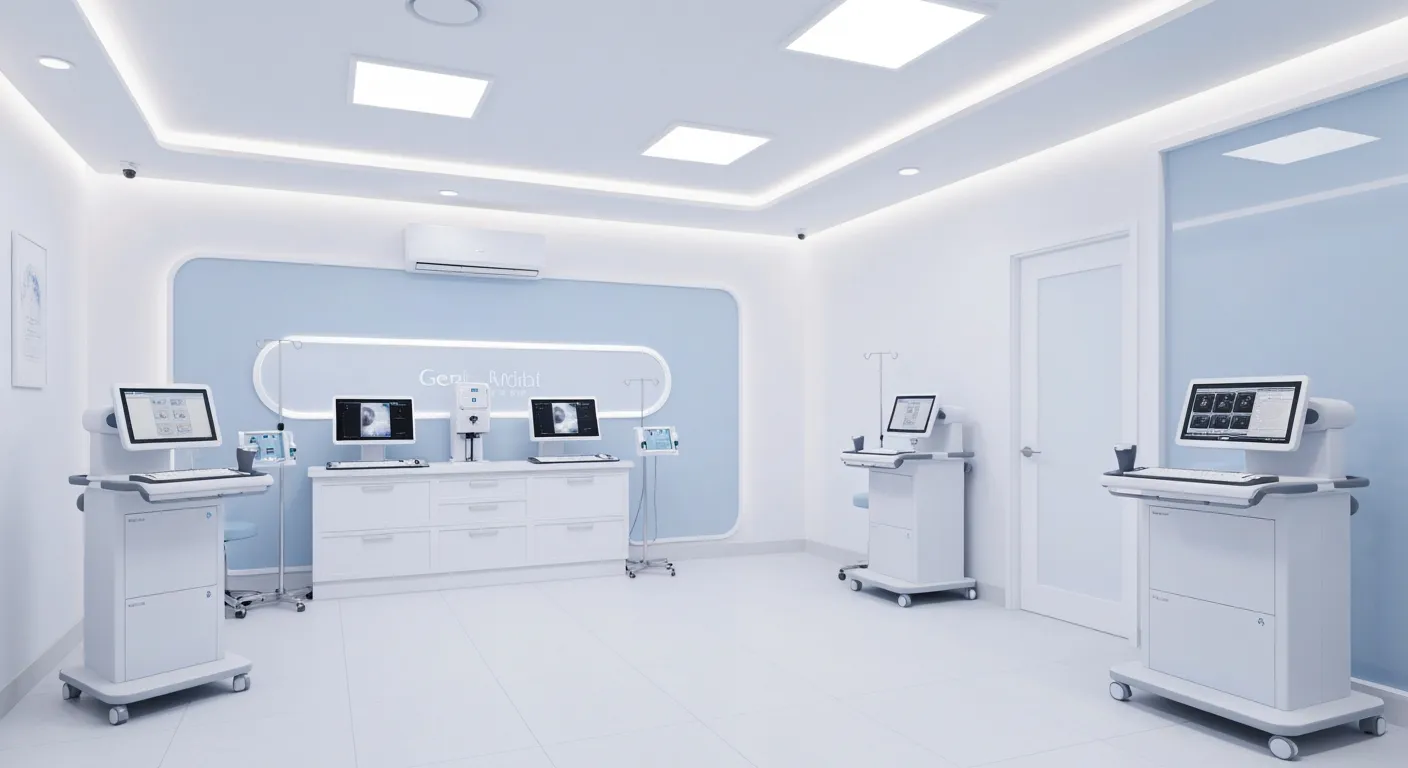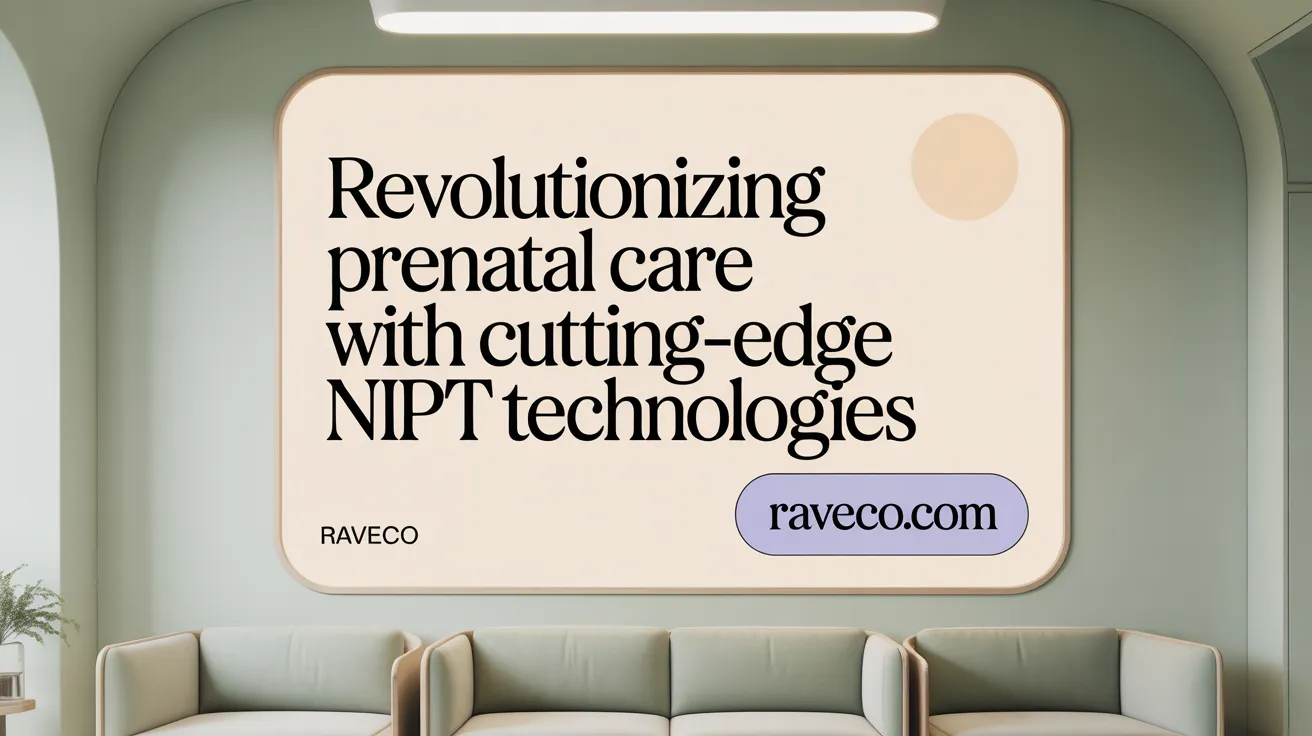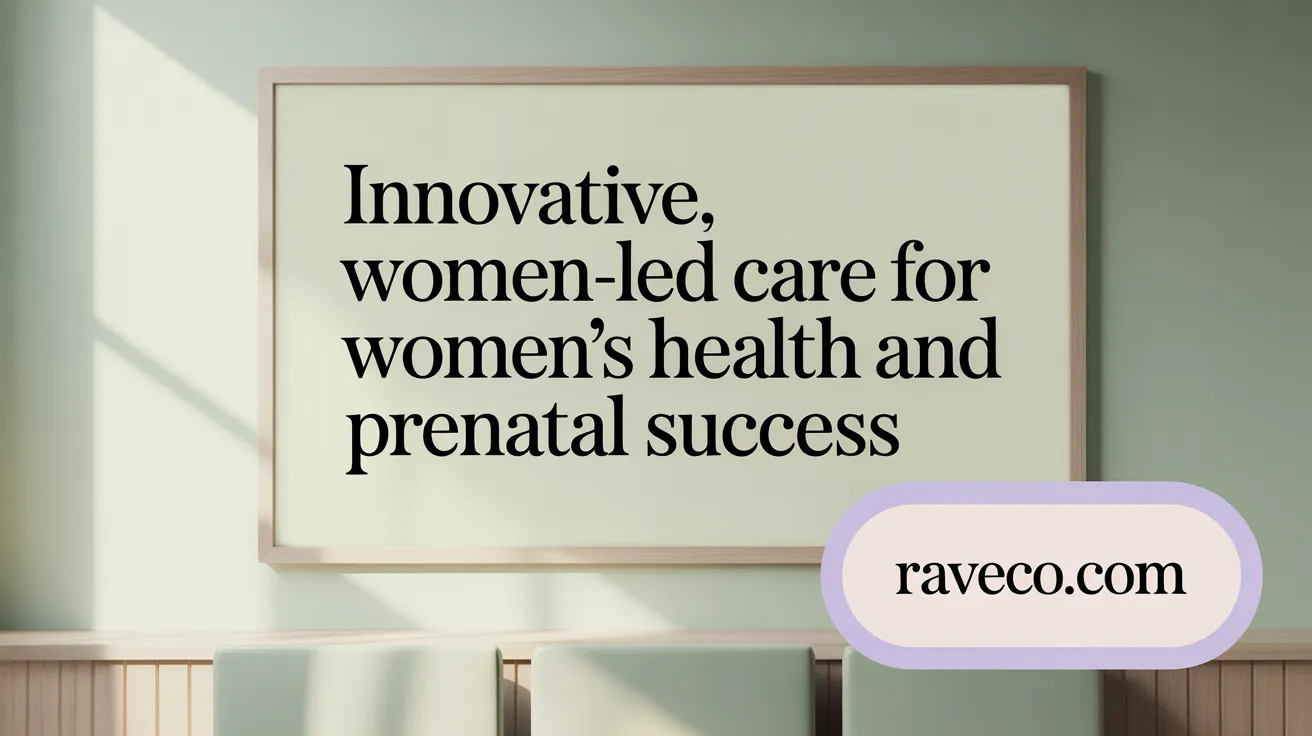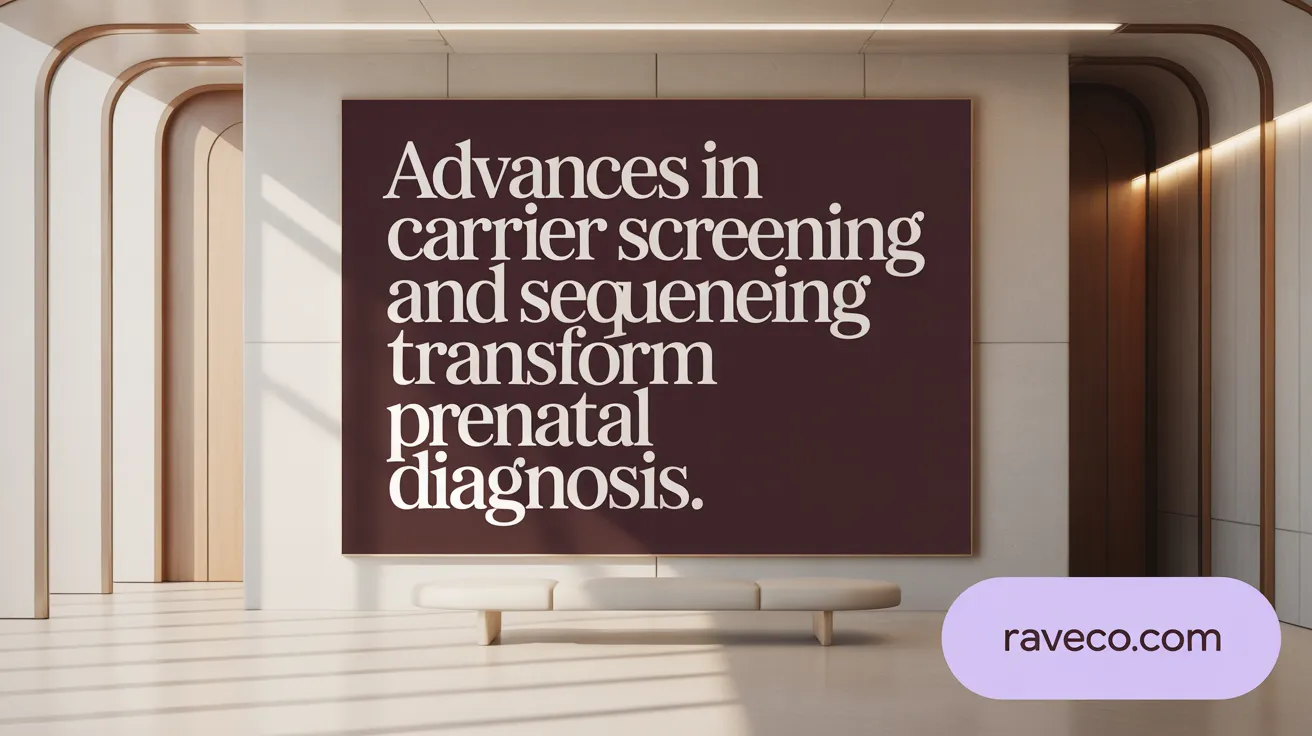Empowering Choices: The Essentials of Birth Control Counseling

The Evolution of Prenatal Genetic Screening and Counseling
Advancements in Prenatal Genetic Screening
Prenatal genetic screening has progressed remarkably from traditional methods to highly sensitive and specific non-invasive prenatal testing (NIPT) using cell-free DNA (cfDNA). This approach, available as early as 9 to 10 weeks gestation, screens for common chromosomal conditions such as trisomy 21 (Down syndrome), trisomy 18, and trisomy 13 with detection rates above 97% and very low false-positive rates. Expanded panels now also cover microdeletions and emerging monogenic disorders, making early, noninvasive fetal risk assessment more accessible and accurate than ever before.
The Role of Genetic Counseling in Obstetrics
Genetic counseling is vital in guiding expectant mothers through the complex decision-making process surrounding prenatal testing. Counselors provide essential information on test benefits, limitations, and potential familial implications, supporting informed, values-based choices. Throughout Queens, NY, expert genetic counseling services collaborate closely with obstetricians to offer personalized risk assessments, interpretation of results, and emotional support, especially when diagnostic follow-up is needed due to positive or uncertain screening outcomes.
Impact on Women's Health Care in Queens, NY
The advances in genetic screening and counseling have significantly enhanced maternal-fetal care in Queens. Institutions like Montefiore Einstein and NewYork-Presbyterian offer state-of-the-art prenatal testing integrated with expert counseling, ensuring comprehensive care tailored to diverse populations. These services improve early detection of genetic conditions, enable better pregnancy management, and empower women with knowledge and support. This evolution in prenatal care contributes to healthier pregnancies and personalized wellness for women throughout the Queens community.
Cutting-Edge Non-Invasive Prenatal Testing (NIPT) Technologies

What are the latest advancements in non-invasive prenatal genetic testing?
Non-invasive prenatal testing (NIPT) advancements have revolutionized prenatal care by analyzing cell-free DNA (cfDNA) techniques from maternal blood, allowing very early and accurate detection of fetal genetic conditions. This technology can identify common aneuploidies such as trisomy 21 (Down syndrome), trisomy 18, and trisomy 13, with detection rates exceeding 97% and false-positive rates below 0.1%. Screening is typically possible from as early as 9-10 weeks of gestation.
How does NIPT screen for aneuploidies and microdeletions?
Beyond common trisomies, NIPT now extends to detecting sex chromosome aneuploidies and microdeletions — for example, the 22q11.2 deletion syndrome. Although data on sensitivity and predictive value for rare microdeletions vary, these screenings provide valuable risk assessment. The Panorama™ test, for instance, uses SNP-based technology to screen for microdeletions and is uniquely capable of detecting triploidy, a condition involving an entire extra set of chromosomes.
What advancements allow expanded detection through NIPT?
Recent breakthroughs include the development of non-invasive fetal exome sequencing (NIFS), an innovative method that sequences the entire fetal exome using maternal blood samples. Early trials report over 99% sensitivity for detecting single gene mutations, deletions, and insertions, offering detailed genetic insights without invasive procedures.
Additionally, expanding panels screen for hundreds of autosomal recessive and X-linked conditions irrespective of ethnicity, with emerging methods such as relative mutation dosage and haplotype analysis enhancing the detection of monogenic disorders like cystic fibrosis and hemophilia.
What are the benefits of these new NIPT technologies compared to invasive testing?
NIPT eliminates the risks associated with invasive diagnostic tests such as amniocentesis and chorionic villus sampling (CVS), which carry a miscarriage risk. The non-invasive approach is safer for both mother and fetus, provides rapid turnaround times (results often within a week), and supports timely decision-making. Genetic testing counseling is integral to help women understand results and make informed choices.
How are these innovations integrated into prenatal care?
Guidelines recommend offering NIPT to all pregnant women regardless of risk status, enhancing early detection capabilities. Confirmatory invasive testing is advised after high-risk NIPT results to establish definitive diagnosis. These cutting-edge genetic tests are widely available in advanced healthcare centers, including those providing Comprehensive obstetrics services in Queens, NY, ensuring comprehensive prenatal genetic screening and personalized pregnancy management.
The Expanding Role of Genetic Counseling in Prenatal Care

Why is genetic counseling important in prenatal screening?
Genetic counseling plays a crucial role in prenatal care by helping expectant mothers and families understand the complex results from genetic testing counseling. Counselors provide clear, objective, and nondirective guidance both before testing (pretest genetic counseling benefits and risks) and after results are received (posttest genetic counseling.
Pretest counseling involves educating patients about the benefits, limitations, and possible outcomes of genetic screening tests like non-invasive prenatal testing advances. Posttest counseling supports patients in interpreting their results, whether they are normal, abnormal, or uncertain, helping manage any anxieties or psychosocial stress that may arise.
Counseling also highlights the familial implications of genetic tests, encouraging patients to share significant information with at-risk relatives, thus supporting broader family health management.
In Queens, NY, genetic counselors work closely with OB/GYN providers to tailor reproductive planning and risk assessment, considering individual and family histories (Genetic counselors in ob/gyn, Genetic Counseling at Montefiore Einstein). They help navigate ethical considerations in prenatal genetic testing, such as those arising from the potential for pregnancy termination following positive screening, and practical concerns like insurance impacts (Genetic testing counseling.
This comprehensive, patient-centered approach ensures that families receive empathetic support and informed guidance throughout pregnancy, empowered to make decisions aligned with their values and needs.
Personalized Women's Health Care in Obstetrics and Gynecology: A Woman-Led Approach

What services does a woman-led healthcare provider specializing in comprehensive obstetrics and gynecology offer?
A woman-led healthcare provider specializing in comprehensive obstetrics and gynecology typically offers a wide range of services tailored to meet the diverse needs of women throughout their lifespan. These services include routine gynecological exams and preventive care to promote overall reproductive health. Family planning options such as intrauterine devices (IUDs) and contraceptive implants are made available to support informed reproductive choices.
Management of common gynecologic conditions like polycystic ovary syndrome (PCOS), fibroids, ovarian cysts, and menopausal care are integral parts of practice. These providers deliver prenatal and postpartum care, incorporating advanced genetic counseling and cutting-edge prenatal screening methods such as non-invasive prenatal testing (NIPT) advancements to ensure early and accurate detection of fetal genetic conditions.
Cultural sensitivity is emphasized, with multilingual support enhancing communication. Minimally invasive procedures, affordability across diverse insurance plans, and personalized attention define these practices, fostering patient comfort and accessibility.
Why is personalized women's health care important in obstetrics and gynecology?
Personalized care in women’s health is essential as it considers the unique medical histories, genetic backgrounds, lifestyles, and preferences of each woman to optimize health outcomes. Tailoring treatment plans enhances the effectiveness and safety of care, especially when integrating advanced technologies like genetic screening for pregnancy.
This approach builds trust, fosters open communication, and promotes active patient engagement in healthcare decisions. It supports better physical and emotional wellbeing by respecting individual values and ensuring that care adapts to evolving needs over time.
What distinguishes a woman-led healthcare practice in the field of obstetrics and gynecology?
Woman-led healthcare practices are distinguished by leadership deeply rooted in understanding women’s specific health experiences and concerns. Such practices excel in providing empathetic, patient-centered care, addressing sensitive topics with compassion and openness.
Often pioneering in adopting innovations like genetic counseling and precision medicine, these practices integrate comprehensive genetic counseling services and state-of-the-art prenatal screening technologies early into care models. They champion culturally appropriate care, support diversity, and create empowering environments where women feel heard, respected, and actively involved in managing their health.
Expanded Carrier Screening and Next-Generation Sequencing in Prenatal Diagnosis

How have carrier screening and next-generation sequencing advanced prenatal diagnosis?
Carrier screening has significantly broadened, now covering hundreds of autosomal recessive and X-linked conditions across all ethnic backgrounds. This expansion allows identification of at-risk couples even without a known family history, improving early risk assessment during pregnancy (Expanded carrier screening).
Next-generation sequencing (NGS), including whole exome sequencing (WES) and whole genome sequencing (WGS), has been incorporated into prenatal diagnostics, particularly when ultrasound detects fetal anomalies. These advanced sequencing methods enable detection of rare monogenic disorders and structural variants such as copy number variations (CNVs), providing a more comprehensive understanding of the fetus’s genetic health (Genetic counselling in the era of next generation sequencing).
The integration of expanded carrier screening and NGS has elevated diagnostic rates in prenatal care, enhancing the ability to tailor neonatal management and treatment plans. Personalized genetic information guides clinical decisions, influences counseling for families, and improves outcomes by preparing healthcare teams for specific needs immediately after birth (prenatal genetic testing advancements).
Overall, these advancements represent a leap forward in precision prenatal care, offering expectant parents and clinicians in Queens, NY, and beyond more detailed and actionable genetic insights during pregnancy (Genetic Counseling at Montefiore Einstein.
Clinical Implementation and Ethical Considerations of Advanced Prenatal Genetic Testing

What are the ethical and clinical challenges associated with advanced prenatal genetic testing?
Advanced prenatal genetic testing offers tremendous benefits but also introduces ethical and clinical challenges. Ethical concerns include ensuring ethical considerations in prenatal genetic testing and managing the potential psychosocial impact of uncertain or incidental findings such as variants of uncertain significance (VUS). For example, variants of uncertain significance or unexpected results may cause anxiety for patients and complicate decision-making. Additionally, results can have implications for family members, raising questions about disclosure and privacy.
In regions with restrictive laws on pregnancy termination, such as certain areas of Queens, NY, the delivery of noninvasive prenatal testing (NIPT) results may heighten sensitive issues related to pregnancy management. These areas require thoughtful counseling to address possible societal and ethical implications, safeguarding patients' autonomy and well-being.
How do genetic counselors support patients in managing expectations and psychosocial concerns?
Genetic counselors play a pivotal role in helping patients navigate the complexities of prenatal genetic testing. They provide personalized, clear, and compassionate communication before and after testing, explaining the benefits, limitations, and possible outcomes (Genetic testing counseling. Counselors assist in interpreting complex results and managing the emotional and psychological consequences of testing. Through thorough pretest counseling, they help set realistic expectations and reduce anxiety, while posttest counseling includes support for decision-making and addressing familial implications.
In Queens, NY, institutions such as Montefiore Einstein and Weill Cornell Medicine integrate genetic counseling with advanced prenatal diagnostic services, offering patients comprehensive support that respects cultural and personal values.
Why is timely communication and follow-up important in Queens healthcare settings?
Prompt, transparent communication of genetic test results is essential to optimize medical decision-making and patient care. In Queens healthcare settings, timely disclosure allows for early interventions, additional diagnostic testing when needed, and preparation for potential neonatal management (Genetic testing communication and counseling). Delays in follow-up can cause unnecessary stress and reduce the effectiveness of prenatal care.
Clinics in Queens emphasize protocols to ensure that results are communicated swiftly and genetic counselors are available to guide patients. This multidisciplinary approach supports informed decisions and upholds patient-centered care (Long Island Jewish Forest Hills Hospital maternity care).
What are emerging research directions and future prospects in prenatal genetic testing?
Emerging research is focused on improving the noninvasive detection of monogenic disorders using cell-free DNA (cfDNA) techniques and non-invasive fetal exome sequencing (NIFS). These advances aim to reduce reliance on invasive procedures like amniocentesis, enhancing safety and early diagnosis.
Moreover, pioneering studies are exploring prenatal gene therapies and genome editing, which could transform treatment options for genetic conditions detected in utero. While promising, these innovations bring new ethical considerations that require careful deliberation and patient counseling (ethical considerations in prenatal genetic testing).
Ongoing research in Queens and internationally, supported by medical centers such as Columbia University Irving Medical Center, continues to push the boundaries of prenatal genetic care, striving for more precise and personalized medicine while maintaining ethical integrity.
Looking Ahead: The Future of Prenatal Screening and Genetic Counseling
Technological Advances and Patient-Centered Care
Emerging technologies such as cell-free DNA (cfDNA) screening and non-invasive fetal exome sequencing are transforming prenatal genetic testing. These advances offer highly sensitive, early detection of chromosomal abnormalities and monogenic disorders without risks associated with invasive procedures. Their integration into prenatal care enhances safety, accuracy, and timely decision-making for pregnant women in Queens, NY.
The Vital Role of Genetic Counseling
Specialized genetic counselors provide essential guidance, helping women and families understand complex test results, inheritance patterns, and reproductive options. In Queens, services offered by centers like Montefiore Einstein and Weill Cornell ensure personalized care that addresses both medical and psychosocial aspects, empowering women to make informed choices tailored to their unique circumstances.
Innovations Shaping Prenatal Healthcare
Future research aims to refine cfDNA methods for detecting rare genetic variants and expand prenatal genome sequencing from blood samples. These innovations promise even more comprehensive noninvasive screening options, reducing reliance on invasive tests. Coupled with culturally sensitive counseling and multidisciplinary care, these advancements are poised to elevate prenatal health outcomes throughout Queens, supporting healthier pregnancies and families.





.png)